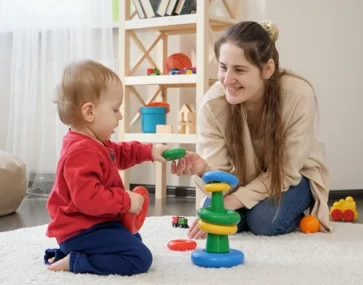When a child shows signs of developmental delay or disability, time becomes the most valuable asset. The early intervention program is designed to act swiftly, offering vital support and therapy during the crucial early years. But what is early intervention, and why is it considered so essential in shaping a child’s future? This blog breaks down the meaning of early intervention, explains its importance, outlines the different types of support available, and emphasizes the role of early intervention in Dubai.
Understanding Early Intervention: Definition and Purpose
The early intervention refers to a structured system of services provided to infants and young children (typically from birth to age six) who show signs of developmental delays or disabilities. These services aim to support both the child and their family during the foundational years of growth. Whether it’s speech delays, cognitive challenges, or physical impairments, the goal of early intervention is to promote optimal development and minimize the need for intensive future support.
Why Is Early Intervention Important?
So, why is early intervention important? Research consistently shows that the brain’s development is most adaptable in the early years. Addressing delays during this window can significantly improve long-term outcomes in areas such as learning, social interaction, and emotional well-being. Delayed action, on the other hand, may result in compounded developmental challenges. Early response ensures the child gains skills at the right pace, building confidence and independence.
Types of Early Intervention
There are several types of early intervention services, customized to meet individual developmental needs. These include:
- Speech and language therapy: for children struggling to communicate effectively.
- Occupational therapy: helping with fine motor skills, sensory issues, or daily living activities.
- Physical therapy: improving movement, posture, and coordination.
- Behavioral therapy: supporting emotional regulation and behavior management.
Additionally, many early childhood intervention program settings also provide family counseling, educational support, and health services to ensure holistic development.
What Happens in an Early Intervention Program?
An early childhood intervention program is tailored to each child’s unique strengths and areas of concern. It typically begins with a comprehensive assessment by a team of specialists. Once the child’s needs are identified, a personalized intervention plan is developed. Therapy sessions may be conducted in clinics, homes, or schools and often involve active participation from caregivers to reinforce learning in daily life. In the top-rated early intervention center in Dubai facilities, such programs are delivered by licensed therapists using evidence-based strategies.
The Role of Early Intervention Dubai Services
With growing awareness and demand for quality developmental support, early intervention programs in Dubai have emerged as a beacon for families seeking early diagnosis and intervention. These programs are built on international standards, yet sensitive to cultural dynamics. Leading early intervention centers in Dubai, like Hope AMC, offer multilingual support, personalized plans, and state-of-the-art facilities to ensure every child receives the care they need.
Benefits Beyond Developmental Gains
The impact of early intervention stretches beyond developmental milestones. Families benefit from guidance and emotional support, creating a more nurturing home environment. Communities thrive when children with delays are empowered to participate fully in educational and social settings. Ultimately, the broader society reaps the reward of reduced long-term care costs and more inclusive environments.
FAQ: Early Intervention Program
Conclusion: Choose Hope AMC for Transformative Early Intervention
For families seeking trusted early intervention services in Dubai, Hope AMC stands as a leader in specialized child development therapies. As a premier early intervention expert, we deliver personalized, compassionate, and goal-oriented care through our comprehensive early childhood intervention program. With our multidisciplinary approach and evidence-based interventions, children are empowered to reach their fullest potential, one milestone at a time.Schedule an appointment today!



